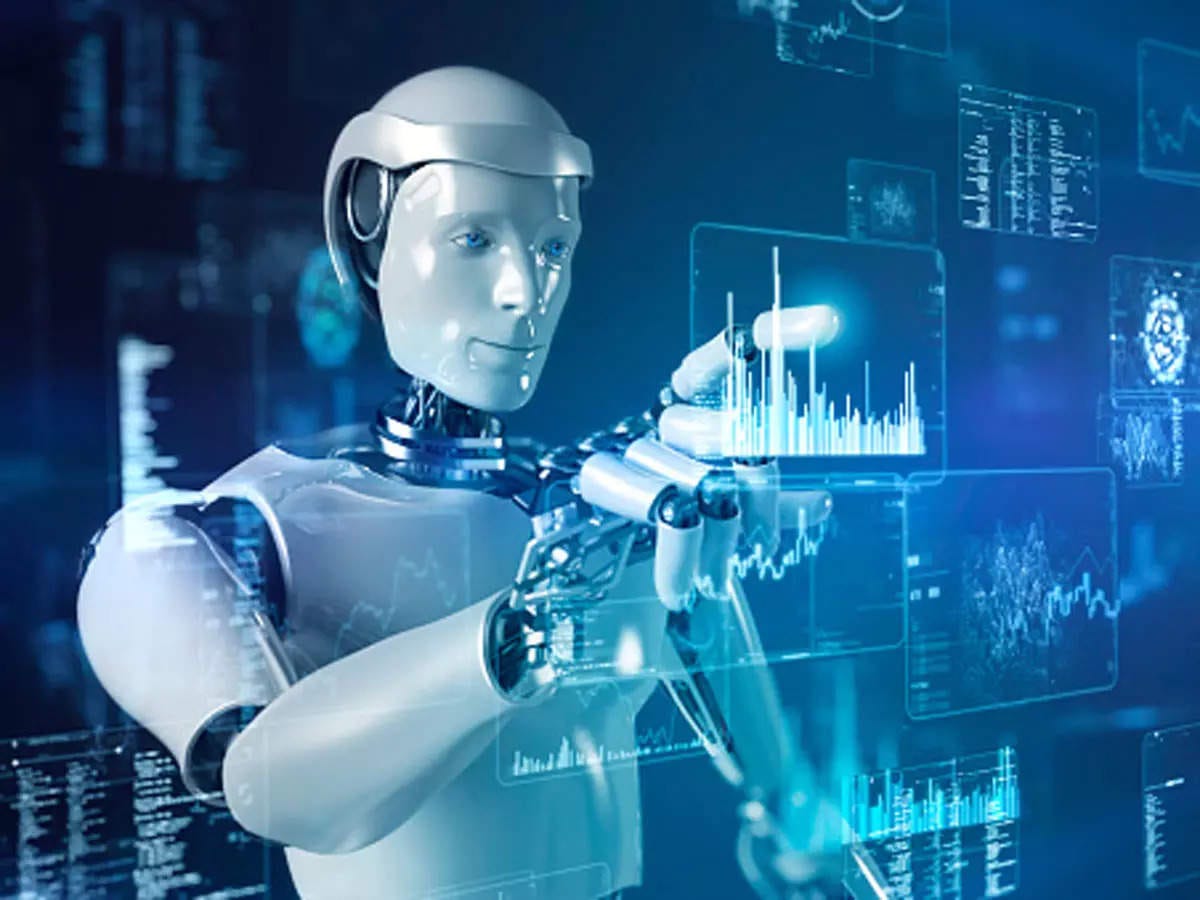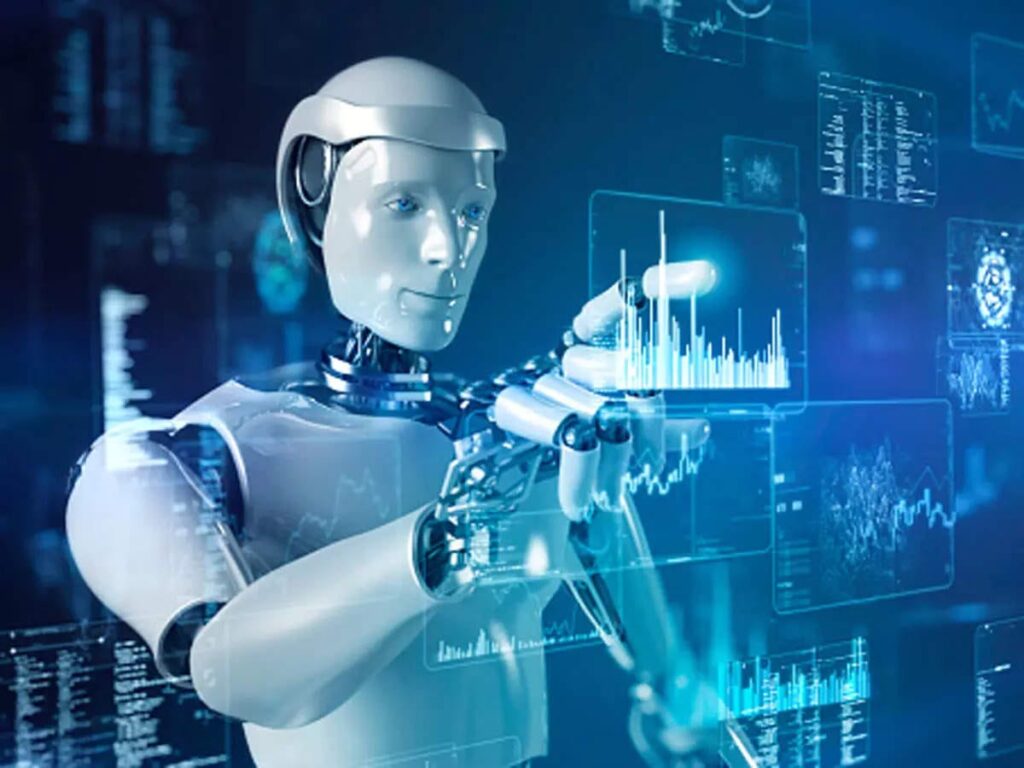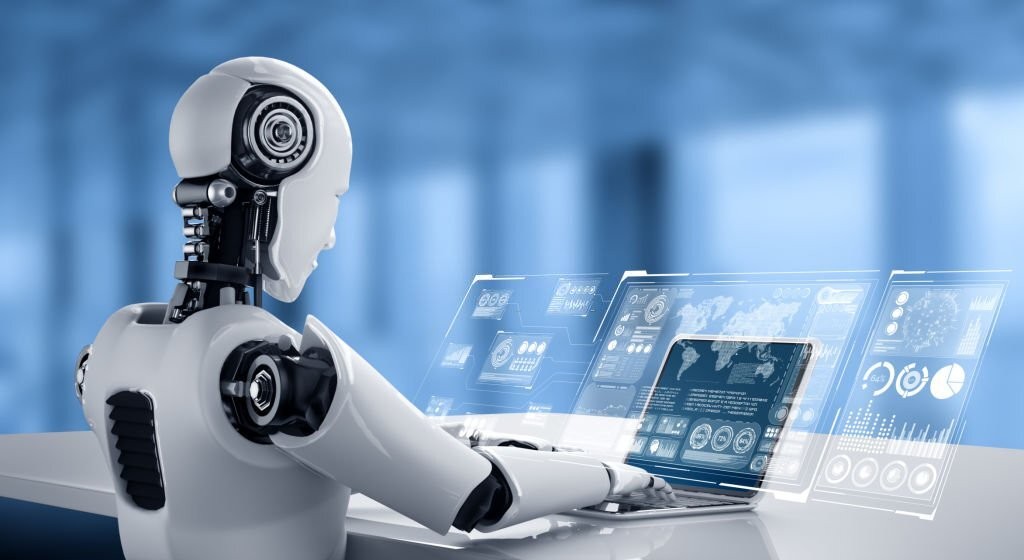In the ever-evolving field of information technology, it’s essential to stay up-to-date on the latest advancements and innovations. From cybersecurity to artificial intelligence to cloud computing, these advancements are revolutionizing the way we work, communicate, and interact with the digital world. Let’s explore the current trends shaping today’s technology landscape. Advances in information technology continue to advance, offering innovative solutions for businesses. Cloud computing continues to become more sophisticated, offering expanded storage and computing power. Artificial intelligence is developing with more powerful algorithms, integrated into various sectors. Cybersecurity is becoming a priority with advanced protection techniques. Software engineering is evolving towards DevOps for better collaboration. Image processing and robotics offer new possibilities with visual recognition and task automation. These advances highlight the importance of integrating new technologies to remain competitive in the market.

- New communication technologies: 5G, WiFi 6
- Artificial intelligence and machine learning: Deep learning, Natural Language Processing
- Artificial neural networks
- Virtual and augmented reality
- Computer security: Blockchain, Cybersecurity
News in the field of information technology
Advances in information technology continue to advance, providing innovative and efficient solutions for businesses. Here are the most significant developments in this field. Cloud computing continues to become more sophisticated. Cloud service platforms now offer extensive storage, computing power, and flexibility. This development allows businesses to optimize their IT resources and respond more effectively to changing market needs. Recent innovations in artificial intelligence (AI) focus on improving predictive algorithms and machine learning. AI solutions are increasingly being integrated into various sectors, such as healthcare, finance, and customer service. These technologies automate repetitive tasks and analyze massive amounts of data for faster and more accurate decision-making. Cybersecurity is more of a priority than ever. The emergence of new threats has led to the development of advanced protection techniques. Companies are now adopting a proactive approach with incident detection and response systems, behavioral analysis tools, and enhanced security protocols to protect their sensitive data. Software engineering methods are evolving with the trend toward DevOps, which integrates development and operations processes. This approach promotes closer collaboration between teams, accelerates delivery cycles, and improves software quality.
In the fields of image processing and robotics , advances in visual recognition and task automation are opening up new possibilities. Companies are adopting computer vision solutions for quality control, surveillance, and even enhanced customer experiences.
Here are some of the major innovations currently in vogue:
- More integrated AI platforms for various applications.
- Hybrid cloud solutions for increased flexibility.
- Advanced identity management and cybersecurity tools.
- Integration of robotic process automation (RPA).
- Image processing technologies for better visual analysis.
These advances reflect a constantly evolving dynamic, where the integration of new technologies is key to maintaining high competitiveness and meeting growing market demands.
Cloud Computing
Cloud computing continues to revolutionize the world of information technology. This advancement allows businesses to store, process, and manage data via remote servers. The benefits are numerous:
- Flexibility of IT resources
- Reduction of infrastructure costs
- Scalability according to business needs
- Secure access to data anywhere
The development of artificial intelligence (AI) also marks a significant turning point. Algorithms are becoming increasingly sophisticated, capable of analyzing massive volumes of data to provide valuable insights. Applications include:
- Predicting market trends
- Automation of repetitive tasks
- Improving user interfaces through voice assistants
When it comes to cybersecurity, companies are investing in advanced technologies to protect their infrastructures. Innovative solutions include:
- Next-generation firewalls
- Proactive threat detection
- Best practices in identity and access management
The image processing and robotics sectors are also gaining importance. New solutions help automate internal processes, improve product quality, and reduce human error. These technologies are essential for companies looking to increase their operational efficiency.
Artificial intelligence
Recent advances in information technology are truly fascinating. Among the most notable innovations are significant developments in cloud computing, artificial intelligence, and cybersecurity. Cloud computing continues to evolve at a rapid pace, offering increasingly powerful solutions for businesses. Hybrid cloud services, combining public and private environments, are gaining popularity, enabling greater flexibility and better cost management. Furthermore, serverless computing technologies now make it possible to deploy applications without worrying about the underlying infrastructure, significantly simplifying information systems management. In cybersecurity, new and more sophisticated techniques are being developed to combat growing threats. Automated Detection and Response (EDR) systems are now capable of detecting and countering attacks in real time, providing an additional layer of protection. In addition, the use of artificial intelligence in cybersecurity makes it possible to predict and prevent cyberattacks before they even occur.
Artificial intelligence ( AI) is also making dramatic advances. Machine learning and deep learning algorithms are improving significantly, making AI systems more powerful and accurate. Here are some key applications:
- Chatbots are becoming more natural and interactive, improving the user experience in various areas, such as customer support.
- Recommendation systems used by e-commerce platforms and streaming services offer suggestions that are increasingly tailored to user preferences.
- Industrial applications of AI optimize production processes, reduce costs,a nd improve product quality.
Finally, image processing and robotics technologies continue to advance, enabling the automation of more processes within businesses. Smart cameras and collaborative robots are increasingly present in daily tasks, increasing efficiency and precision.
Internet of Things
The information technology industry is evolving rapidly, bringing significant innovations that are transforming the way businesses operate. New advances in cloud computing artificial intelligence, and cybersecurity are playing a key role in optimizing internal processes and protecting data. Cloud computing continues to grow with increasingly flexible and scalable solutions. Businesses can now host their applications and data on secure cloud platforms, enabling simplified management and reduced operational costs. Artificial intelligence ( AI) is also making major advances. Machine learning algorithms and neural networks offer predictive analytics, business process automation, and improved customer experience through sophisticated virtual assistants and chatbots. When it comes to cybersecurity, new technologies play a crucial role in threat detection and prevention. AI-based intrusion detection systems, data loss prevention solutions, and identity and access management tools help strengthen the security of information systems. Image processing and robotics improve internal business processes. Computer vision technologies automate quality control, while collaborative robots assist teams with repetitive tasks, increasing productivity and accuracy. Businesses must stay up-to-date with new technologies to stay ahead of the curve. Recent innovations demonstrate a trend toward deeper system integration and improved interoperability. Software development platforms are evolving to offer more powerful integrated development environments (IDEs) and collaborative tools that facilitate teamwork. These advancements help reduce development cycles and improve code quality. The Internet of Things (IoT) is experiencing exponential growth. New smart, connected devices are improving operational efficiency and offering unprecedented opportunities for real-time data collection and analysis.
- IoT sensors monitor industrial equipment to prevent breakdowns and optimize preventive maintenance.
- Wearable devices track employee health indicators, promoting a safer work environment.
- Intelligent building management systems reduce energy costs and improve occupant comfort.
These technological innovations continue to have a profound impact on information systems management, providing opportunities for continuous improvement and process optimization.
Impacts of these advances on society
The latest advances in information technology are revolutionizing various industries. Cloud computing continues to expand, offering more secure and flexible solutions. Businesses are increasingly adopting hybrid infrastructures to benefit from the advantages of both public and private clouds. Artificial intelligence ( AI) is also evolving at a rapid pace. Machine learning algorithms are becoming more sophisticated, enabling more accurate and rapid data analysis. AI is now being used to optimize cybersecurity, detecting and neutralizing threats in real time. In terms of cybersecurity, new data protection methods are emerging, such as blockchain, which guarantees the integrity of transactions and information exchanged. These technologies strengthen security measures to prevent increasingly sophisticated attacks. Image processing and robotics are also experiencing significant advances. Facial and object recognition systems are becoming more efficient, integrating solutions to improve security and process automation within businesses. Advances in software engineering also facilitate system integration. Microservices architectures enable more agile and modular deployments, improving the efficiency of development teams and application maintenance. These technological innovations have had a significant impact on society. First and foremost, they are transforming the world of work. The adoption of cloud computing and hybrid infrastructures allows businesses to be more agile and respond quickly to changing market needs. Advances in AI are also changing our daily lives, whether through virtual assistants, self-driving cars, or more accurate medical diagnostics. This technology improves productivity and opens the door to new industries and jobs. In the field of cybersecurity, new protection methods strengthen the trust of users and businesses in digital systems. This is crucial to encourage the adoption of new technologies and the transition to a more secure digital economy. Advances in image processing and robotics are having major impacts on logistics manufacturing nd even healthcare. Intelligent, autonomous systems enable safer, faster, and more efficient operations. From a social perspective, these technologies promote inclusivity by making certain tasks accessible to people with disabilities and by improving access to education and basic services through innovative digital tools.
Data security
Information technology is undergoing constant evolution, marked by major innovations. Among these, cloud computing continues to grow, offering ever more efficient data storage and processing solutions. Businesses now have access to flexible, scalable, and cost-effective infrastructures. At the same time, artificial intelligence (AI) is advancing rapidly, with diverse applications ranging from predictive analytics to speech recognition. These technologies help optimize internal processes, improve decision-making, and create personalized services for end users. The field of cybersecurity is constantly evolving to address growing threats. Innovative solutions include advanced intrusion detection systems, stronger encryption protocols, and multi-factor authentication tools. These technologies are essential for protecting sensitive data and ensuring business continuity. Technological advances also have a considerable impact on society. They facilitate the digital transformation of businesses, enabling better resource management and improved production processes. Citizens, in turn, benefit from more efficient, accessible, and secure services. On the other hand, these innovations pose ethical and social challenges. Privacy protection is becoming a major concern, as are the fairness and transparency of algorithms. Legislation and regulations must evolve accordingly to ensure the responsible use of information technology. Data security is a priority for companies handling sensitive information. Using state-of-the-art cryptography techniques, implementing rigorous backup systems, and conducting regular audits are essential measures to prevent data leaks.



